Caryn

 When a loved one passes away, you don’t get to see them on this Earth any more, but they seem to take up a new kind of space all their own, because they are always on your mind. You may not even realize that you are thinking of them exactly, but they are there in the back of your mind, just beneath the surface, until something happens that brings their memory to the forefront again. It isn’t always a sad thing when it happens, but sometimes it is. I think that as time goes by, we are able to look more to happy memories than lonely tears. I don’t think it is a bad thing to have your loved ones living in your memory, occupying a special place in your heart, or even always being on your mind, it’s just that sometimes it is a little hard when you are hit with a ton of bricks moment…when their memory is thrown out there so unexpectedly that it does bring tears, and you are helpless to stop them. Really, it’s the only way, once a loved one has passed away.
When a loved one passes away, you don’t get to see them on this Earth any more, but they seem to take up a new kind of space all their own, because they are always on your mind. You may not even realize that you are thinking of them exactly, but they are there in the back of your mind, just beneath the surface, until something happens that brings their memory to the forefront again. It isn’t always a sad thing when it happens, but sometimes it is. I think that as time goes by, we are able to look more to happy memories than lonely tears. I don’t think it is a bad thing to have your loved ones living in your memory, occupying a special place in your heart, or even always being on your mind, it’s just that sometimes it is a little hard when you are hit with a ton of bricks moment…when their memory is thrown out there so unexpectedly that it does bring tears, and you are helpless to stop them. Really, it’s the only way, once a loved one has passed away.
In many ways, we like having them living there, in the back of our minds, because it give us a warm sense of Heaven…a closer connection to it, maybe. Someone very dear to us lives there now, and like my search for new connections in my family history, just knowing they are there, waiting in Heaven for us to join them someday, makes me feel like I am a part of Heaven already. I guess that is really because a part of my heart lives there now, and really always has. It encourages me to keep going forward because for me and my family, there is an expected end…a destination. While my journey must remain here for now, and God is taking the time to show me the beautiful things He has made here, I know that someday, my own journey will take me to a place I haven’t and couldn’t ever travel to before, where I will see my loved ones in person again, but for now I must wait for that glorious day to arrive.
Each item I see that belonged to those I love returns them to the forefront of my mind again. Our memory is 
 often triggered by something we see, hear, or even smell, because in our memory files, our senses are tied to those we love. I’m thankful for those ties really, even though sometimes the memories hurt a little, because it is those memories that keep my loved ones alive, in the back of my mind, waiting for their moment to grace my thoughts once again. I love each and every one of those loved ones, although I cannot picture all of them here. Parents, grandparents, aunts, uncles, cousins, a sister-in-law, and three nieces are waiting in Heaven. I love then, and they are always on my mind.
often triggered by something we see, hear, or even smell, because in our memory files, our senses are tied to those we love. I’m thankful for those ties really, even though sometimes the memories hurt a little, because it is those memories that keep my loved ones alive, in the back of my mind, waiting for their moment to grace my thoughts once again. I love each and every one of those loved ones, although I cannot picture all of them here. Parents, grandparents, aunts, uncles, cousins, a sister-in-law, and three nieces are waiting in Heaven. I love then, and they are always on my mind.
 As a little girl, I always loved my Aunt Delores Johnson. She had such a positive outlook on life, almost like she had some secret joyful memories in her mind. What a wonderful way to be. Aunt Dee and my mom were always good friends, as well as sisters. Her children, Ellen, Elmer, Darla, and Delwin were of similar age to my sisters and me, so it was always fun when we got together.
As a little girl, I always loved my Aunt Delores Johnson. She had such a positive outlook on life, almost like she had some secret joyful memories in her mind. What a wonderful way to be. Aunt Dee and my mom were always good friends, as well as sisters. Her children, Ellen, Elmer, Darla, and Delwin were of similar age to my sisters and me, so it was always fun when we got together.
As my parents’ second child, I was at an age where I was feeling a little bit left out of things when my older sister, Cheryl got to spend the night with her friends. That said, I decided to see if I could spend the night with a friend too, and somehow the one I chose was my cousin, Elmer. Needless to say, I was at an age when the fact that he was a boy and I was a girl had no effect on my thinking. Mom and her sister decided that it would be ok for me  to stay, but unbeknownst to me, the plan included the fact that I would be sleeping with Elmer’s younger sister, Darla. Now, Darla was the age of my younger sister, Caryl, so that made her three years younger than me, and not a prime choice for the sleeping arrangement, as far as I was concerned. Nevertheless, I was overruled, and the plan went on as they had decided. In the end, I had fun, but as I recall, Darla had a tendency to kick, so I don’t think I slept very well, but I did get to spend the night with a friend, so I guess I was happy about that. Still, I never forgot having to sleep with Darla, or the lesson I had learned…that when picking a friend to spend the night with, it is probably best, in my case anyway, to make it a girlfriend.
to stay, but unbeknownst to me, the plan included the fact that I would be sleeping with Elmer’s younger sister, Darla. Now, Darla was the age of my younger sister, Caryl, so that made her three years younger than me, and not a prime choice for the sleeping arrangement, as far as I was concerned. Nevertheless, I was overruled, and the plan went on as they had decided. In the end, I had fun, but as I recall, Darla had a tendency to kick, so I don’t think I slept very well, but I did get to spend the night with a friend, so I guess I was happy about that. Still, I never forgot having to sleep with Darla, or the lesson I had learned…that when picking a friend to spend the night with, it is probably best, in my case anyway, to make it a girlfriend.
Aunt Dee was always fun to be around, even if I wasn’t spending the night, which I believe only happened once for  obvious reasons. She smiled a lot, and had a very kind and loving spirit, and a great laugh. She was the kind of person who got along with everyone, but if you went up against her family, you better watch out, because she would protect them to the end, and isn’t that the kind of person you would want to have in your corner? While I must say that my spending the night experience was a bit of a disappointment, Aunt Dee did it in the kindest way possible, and I guess you might say she was protecting my honor, or my reputation, even though at my young age it probably wasn’t necessary. Nevertheless, Aunt Dee and my mom were always ones to do the right thing. Today would have been my Aunt Dee’s 83rd birthday, and I miss her very much. Happy birthday in Heaven Aunt Dee. We love you.
obvious reasons. She smiled a lot, and had a very kind and loving spirit, and a great laugh. She was the kind of person who got along with everyone, but if you went up against her family, you better watch out, because she would protect them to the end, and isn’t that the kind of person you would want to have in your corner? While I must say that my spending the night experience was a bit of a disappointment, Aunt Dee did it in the kindest way possible, and I guess you might say she was protecting my honor, or my reputation, even though at my young age it probably wasn’t necessary. Nevertheless, Aunt Dee and my mom were always ones to do the right thing. Today would have been my Aunt Dee’s 83rd birthday, and I miss her very much. Happy birthday in Heaven Aunt Dee. We love you.
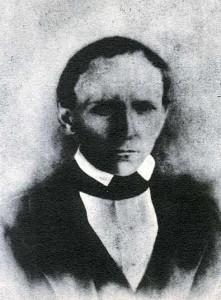
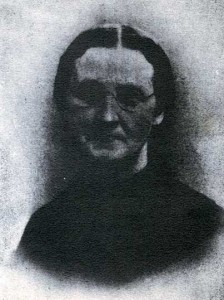 Years ago, I received a CD with a large amount of information on the Knox family, which is my husband, Bob Schulenberg’s mother, Joann Knox’s family. Knowing that these people…dozens of them…are related to you, and knowing how and where they fit in are two very different things. I have been trying to get them connected through Ancestry.com, for years, but really wasn’t able to successfully make the connections until I met John Knox, through his website and through Ancestry.com.
Years ago, I received a CD with a large amount of information on the Knox family, which is my husband, Bob Schulenberg’s mother, Joann Knox’s family. Knowing that these people…dozens of them…are related to you, and knowing how and where they fit in are two very different things. I have been trying to get them connected through Ancestry.com, for years, but really wasn’t able to successfully make the connections until I met John Knox, through his website and through Ancestry.com.
I suppose much of my problem was simply the time constraints, but when you are searching for a specific person without knowing how they fit into your family, but rather only that they do, the search can be endless. They might be the child or grandchild of your great uncle’s daughter. In order to find those connections, you need to go through every person’s children, their children, their 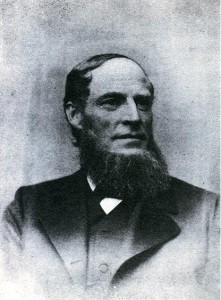
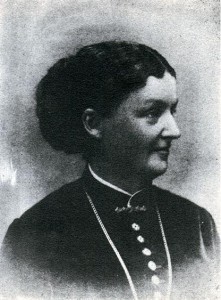 children, and so on. The process can be quite long. That is why making a connection, at any level, with a person who has done research on their family tree becomes one of the most exciting finds in your family history. By following their family back to where you suddenly stumble upon a familiar name from your own tree, you will find yourself face to face…sort of, with a common set of grandparents. Just like that, your family tree has one less mystery in it…or maybe now a new one.
children, and so on. The process can be quite long. That is why making a connection, at any level, with a person who has done research on their family tree becomes one of the most exciting finds in your family history. By following their family back to where you suddenly stumble upon a familiar name from your own tree, you will find yourself face to face…sort of, with a common set of grandparents. Just like that, your family tree has one less mystery in it…or maybe now a new one.
That was exactly how it was for me yesterday, when I finally connected the faces from the CD to the lines in my tree where they belonged. Names like Absolom Knox, who was born in 1738, married Mary Morrison, who was born in 1745, and they had a daughter named Sarah Knox. Sarah then married William Barr, and they had a son named Absolom Knox Barr. Absolom married Abia Foote Wormer, and they had a dughter named Sarah L Barr. Sarah married a man named James Beach…and that takes me in a totally new direction, and one in which they outcome is still unknown to me.

 My sister, Caryl Spencer’s first husband was Warren Beach, and together they have a daughter named Andrea and a son named Allen. Now, I know that my husband, Bob Schulenberg and I are tenth cousins on the Knox side of his family, and twelfth cousins on the Leary side of his family. So now the question becomes, is Warren Beach a cousin at some level. It would not be outside the realm of possibilities, you know. I’m sure it will take some time to trace things back to see if my hunch is right, but if it is, then not only would Caryl and Warren be cousins at some level, but Warren and Bob would be cousins at some level. As with many of my stories, this one will mst likely be the continuing saga…or maybe the mystery of the Knox/Beach connection.
My sister, Caryl Spencer’s first husband was Warren Beach, and together they have a daughter named Andrea and a son named Allen. Now, I know that my husband, Bob Schulenberg and I are tenth cousins on the Knox side of his family, and twelfth cousins on the Leary side of his family. So now the question becomes, is Warren Beach a cousin at some level. It would not be outside the realm of possibilities, you know. I’m sure it will take some time to trace things back to see if my hunch is right, but if it is, then not only would Caryl and Warren be cousins at some level, but Warren and Bob would be cousins at some level. As with many of my stories, this one will mst likely be the continuing saga…or maybe the mystery of the Knox/Beach connection.
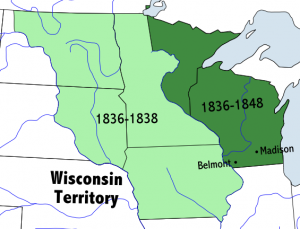 My life began in Superior, Wisconsin. Superior is a small town located at the tip of Lake Superior, which is the largest of the Great Lakes. I have always felt close ties to Superior and to Wisconsin, in general, because while I have not lived there since I was three years old, it was the place of my birth, and the place where my Uncle Bill Spencer and his family lived for many years, as well as many of my great grandparents’ family.
My life began in Superior, Wisconsin. Superior is a small town located at the tip of Lake Superior, which is the largest of the Great Lakes. I have always felt close ties to Superior and to Wisconsin, in general, because while I have not lived there since I was three years old, it was the place of my birth, and the place where my Uncle Bill Spencer and his family lived for many years, as well as many of my great grandparents’ family.
In the early years of the area, the Native American Indian Tribes called it home. The first Europeans to live there were the British and French, and the American settlers who lived in Wisconsin when it was a territory. One tribe, the Meskwaki Indians were particularly hostile toward the French, but many of the Indians got along well with the pioneers. The Great Lakes area increased dramatically after the decline of the British influence following the War of 1812. This was a land with a mix of pioneers and Indians. Of course, like most areas, the Indians were eventually placed on reservations.
Like every state in the United States, Wisconsin started as a US Territory, and when there were enough people to make statehood a necessity, each one became a state. Wisconsin initially became a terriroty on this day, April 20, 1836. Initially, it included all of the present-day states of Wisconsin, Minnesota, Iowa, and part of the Dakotas east of the  Missouri River. Much of that territory was part of the Northwest Territory, which was ceded by Britain in 1783. The portion which is now the Dakotas was originally part of the Louisiana Purchase. Eventually, the states would separate their areas, leaving Wisconsin with the area it now occupies.
Missouri River. Much of that territory was part of the Northwest Territory, which was ceded by Britain in 1783. The portion which is now the Dakotas was originally part of the Louisiana Purchase. Eventually, the states would separate their areas, leaving Wisconsin with the area it now occupies.
My people would arrive in the area much later, but many of them would stay in the area of Wisconsin and Minnesota for generations, and even to this day. For me, there will always be a place in my heart for Wisconsin, especially Superior, and the Great Lakes, especially Lake Superior. It is a beautiful area that my family has called home for generations, and I will always love it.
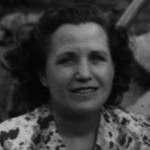 The more I write, the more connected I feel to my Great Aunt Bertha Schumacher Hallgren. I have a feeling that we both used writing for much the same reason…a release of the creative side of ourselves when much of our lives were spent taking care of others. Caregiving is something that is very much an exact science. You have to give the right medicines at the right times, and caring for sick and wounded bodies takes precision and proper methods. There is no room for creativity…other than in the use of items at your disposal to make your job easier, whether it be physical items or the use of your mental abilities to work around a difficult moment in the care of a patient who isn’t ready to give over their independence to someone else, after so many years of being their own person. A caregiver has to follow the instructions of the doctors to the letter in order to insure the improvement and continued health of the patient. And Bertha was a caregiver for many more years than I have been. She knew what it took, and what must be sacrificed.
The more I write, the more connected I feel to my Great Aunt Bertha Schumacher Hallgren. I have a feeling that we both used writing for much the same reason…a release of the creative side of ourselves when much of our lives were spent taking care of others. Caregiving is something that is very much an exact science. You have to give the right medicines at the right times, and caring for sick and wounded bodies takes precision and proper methods. There is no room for creativity…other than in the use of items at your disposal to make your job easier, whether it be physical items or the use of your mental abilities to work around a difficult moment in the care of a patient who isn’t ready to give over their independence to someone else, after so many years of being their own person. A caregiver has to follow the instructions of the doctors to the letter in order to insure the improvement and continued health of the patient. And Bertha was a caregiver for many more years than I have been. She knew what it took, and what must be sacrificed.
Bertha quoted Charles Lamb, who in 1890 wrote “I love to lose myself in other men’s minds.” It might seem a strange thought, to want to get lost in the thoughts of another person, but sometimes their thoughts are so interesting that it is a desirable place to be. Must of us lose ourselves in another man’s mind periodically. Every time you read a good book, your mind pictures the thoughts and images created by the writer. You can’t help yourself really. It’s just how our minds are wired to work.
I have read Aunt Bertha’s journal several times, but it just never gets old. It seems like every time I read it, I discover some new story, whether it is written in the words or simply exists between the lines. Much of what a writer is like can be found living between the lines of the words they write. That is where their feelings live in their writing. Although I don’t recall ever having the opportunity to meet Aunt Bertha, I feel like I know her well. She has poured her heart and soul into her writing. She has been brutally honest about herself. She doesn’t leave out her shortcomings, but puts them into the stories, regardless of how they might make the reader feel about the kind of person she was. Her objective is not to paint herself as a perfect person, but rather to reveal to the reader the true person she was. 
I think many writers would not have the courage to put on paper exactly how they were as a child, worker, caregiver, or person, because they don’t want to show the reader the negative thoughts, or mistakes they have made in their lives. The reality, nevertheless, is that none of us are perfect, but rather human. While Aunt Bertha was not perfect, I truly like the person she was. She reminds me a little bit of myself, and yet inspires me to try to be better than I once was. In her mind, she knows the kind of person she wants to be, and while she failed sometimes, she never quit trying. I find that her mind is truly a good one to lose myself in sometimes.
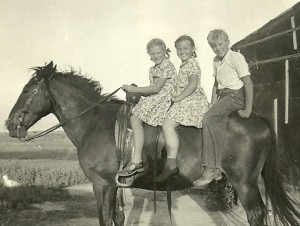 It’s strange that you can look at pictures of people in your family’s history, and somewhere in the back of your mind, you know the names connect, but somehow you don’t connect the people to their parents. While looking through some of the old family pictures from my mother-in-law, Joann Knox Schulenberg’s family, I found pictures of her as a little girl, with two other children, a boy and a girl, who I found out were Richard and Mary Ann Batey. The Batey kids were my mother-in-law’s cousins, and I knew that, but somehow I didn’t connect them with their mother, Bernice Noyes Batey, who I met as an older woman. Then again, I have never met the Batey siblings at all, so maybe that is why they didn’t really connect in my mind. Bernice Batey was my mother-in-law’s mother, Nettie Noyes Knox’s sister, and I did meet her a couple of times. She was a very nice lady, and very sweet, but when you don’t meet the kids at the same time, it can be hard to make the connection. Somehow, the kids end up slipping into that obscure area of almost unknown relatives…until you think about those relationships for a few minutes.
It’s strange that you can look at pictures of people in your family’s history, and somewhere in the back of your mind, you know the names connect, but somehow you don’t connect the people to their parents. While looking through some of the old family pictures from my mother-in-law, Joann Knox Schulenberg’s family, I found pictures of her as a little girl, with two other children, a boy and a girl, who I found out were Richard and Mary Ann Batey. The Batey kids were my mother-in-law’s cousins, and I knew that, but somehow I didn’t connect them with their mother, Bernice Noyes Batey, who I met as an older woman. Then again, I have never met the Batey siblings at all, so maybe that is why they didn’t really connect in my mind. Bernice Batey was my mother-in-law’s mother, Nettie Noyes Knox’s sister, and I did meet her a couple of times. She was a very nice lady, and very sweet, but when you don’t meet the kids at the same time, it can be hard to make the connection. Somehow, the kids end up slipping into that obscure area of almost unknown relatives…until you think about those relationships for a few minutes.
That is exactly what happened with my mother-in-law’s cousins. For a time, I didn’t know those kids were even related at all, until my sisters-in-law told me they were. Then, I just didn’t connect their last name to anyone in particular. Finally, I was looking at a picture of Bob’s grandma, Nettie Knox, with her sister, Bernice Noyes Beaty…who I had always known as Bernice Beaty, it connected. Wow!! These kids were Berniece’s kids. Ok, sometimes I can be a little slow to connect these relationships, but now it became clear just exactly where they fit in.
Family connections are complicated, and even the best genealogy expert could have problems making the connections. Although, maybe if you weren’t 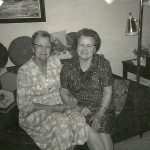 involved as a family member, you would be able to see the relationships clearly. Maybe, you wouldn’t have any pre-conceived idea of where people fit into a family line, if you weren’t somehow emotionally involved with the family.
involved as a family member, you would be able to see the relationships clearly. Maybe, you wouldn’t have any pre-conceived idea of where people fit into a family line, if you weren’t somehow emotionally involved with the family.
I definitely feel a little bit closer to the Noyes side of the family now that I have figured out the connections. I remember meeting Bernice, and thinking that she was such a sweet lady, but then she was Bob’s grandmother’s sister, so being sweet would be right in line with the way the whole family was. I do wish I had known the kids who were such good friends, as well as cousins of my mother-in-law. I’m sure I would have liked them very much too.
 By the late 1960s, space travel had become a pretty common story for the people of the United States. NASA had enjoyed a relatively accident free space travel history, having only lost three astronauts, and that was a fire on the launch pad during training. So, when it came to Apollo 13 going to the Moon, which had been done twice before, the networks decided that it was boring, and opted not to televise the program…until disaster changed everything. For me, it seems impossible that anyone could think that space flight is boring, but someone at the top ranking position in the media, had made an executive decision, so that was the end of it.
By the late 1960s, space travel had become a pretty common story for the people of the United States. NASA had enjoyed a relatively accident free space travel history, having only lost three astronauts, and that was a fire on the launch pad during training. So, when it came to Apollo 13 going to the Moon, which had been done twice before, the networks decided that it was boring, and opted not to televise the program…until disaster changed everything. For me, it seems impossible that anyone could think that space flight is boring, but someone at the top ranking position in the media, had made an executive decision, so that was the end of it.
On April 11, 1970, Apollo 13, the third manned lunar landing mission was launched from Cape Canaveral, Florida, carrying astronauts Jim Lovell, Jack Swigert, and Fred Haise. If you’ve ever seen the movie “Apollo 13”, you will know that Jack Swigert had replaced Ken Mattingly, who had been exposed to the German measles. Ken would never get the measles, but rather was a part of the NASA team effort that worked to bring the stranded astronauts back home safely. The crew planned to land on the Fra Mauro highlands of the moon, but two days into the mission, disaster struck when oxygen tank number 2 blew up in the spacecraft, after Jack Swigert was told to preform a cryo stir procedure to the oxygen tanks…a routine maintenance procedure. Then, Swigert uttered those now famous words, “Houston, we’ve had a problem here.” After evaluation, it was determined that the normal supply of oxygen, electricity, light, and water had been disrupted. Their mission to land on the Moon was over, and now they had a new mission…survival!!
Suddenly the news media was very interested in this mission. A successful mission was boring and not news worthy at all, but one in which fatalities might occur, is very interesting. Sad really…when you think about it. The television stations were supposed to broadcast a segment the crew did about life in space, but while the crew did their segment, the stations decided not to broadcast it for lack of interest. Nine minutes later, when disaster struck, everyone was suddenly very interested. I guess I just don’t understand why we would rather watch news about a disaster, than a successful space mission. I don’t think there is anything common about space travel, and yet, it goes on a lot in our world, completely without notice.
Once the disaster began, the world watched anxiously, praying for the safe return of these brave men. The broken vehicle could not make the trip, and they would have to use the lunar landing module, Oddesy to get them home. They limped along, making the necessary “MacGyver” like connections and adjustments to allow them to have enough oxygen. They made “controlled burns” using the Earth as a guide. Not very controlled at all. It took tremendous effort on the parts of many people, but it all paid off, when on April 17, tragedy turned to triumph as the Apollo 13 astronauts touched down safely in the Pacific Ocean. It was a successful failure, in that no lives were lost.
 The Great Lakes are a beautiful series of lakes in the northern United States that for all intents and purposes might as well be the ocean. They are wonderful places for all kinds of recreation, but they are also working lakes, because the Great Lakes handles shipping from all over the world. That said, the summers can be very busy on the Great Lakes, but the winters are a very different thing. Most of the Great Lakes ice over in the winter, or at least enough to make travel on them pretty much impossible. Since the winters are long in the north, the shipping companies try to get every bit of use out of the lakes that they can, and that can bring hazardous and even tragic results.
The Great Lakes are a beautiful series of lakes in the northern United States that for all intents and purposes might as well be the ocean. They are wonderful places for all kinds of recreation, but they are also working lakes, because the Great Lakes handles shipping from all over the world. That said, the summers can be very busy on the Great Lakes, but the winters are a very different thing. Most of the Great Lakes ice over in the winter, or at least enough to make travel on them pretty much impossible. Since the winters are long in the north, the shipping companies try to get every bit of use out of the lakes that they can, and that can bring hazardous and even tragic results.
November is known for screaming into the area, and with it come the Gales. I suppose that to most people, the thought of a dangerous storm of a lake seems a little odd. Yes, if it were a small boat, just about any storm could make for a dangerous situation on the lake, but when you are a big ocean going vessel or ore boat, you wouldn’t think a storm on the lake would be a big deal. You would find that you are wrong on that one though. Over the years, many lives and many ships have been lost on the Great Lakes when the ship was out on the water just a little too late in the season.
Sometimes, it would be a captain who took a chance on the weather, and got himself into trouble, but other times, it would be a situation when the November Gales fooled them and showed up early. Of course, those types of accidents were much more common before all the the weather tracking equipment that is available these days. Some of the deadliest storms were 1860 when the Lady Elgin sank, killing over 400, the 1835 Lake Huron “Cyclone” which claimed 254 lives, the 1913 Great Storm which claimed 244 lives, the 1880 Alpena  Storm which killed about 100, the 1940 Armistice Day storm which took 66 lives, the 1916 Black Friday storm which killed 49, the 1958 sinking of the Bradley with 33 lives lost, the 1905 Blow whish killed 32, the 1975 sinking of the Edmund Fitzgerald which took 29 lives, the 1966 sinking of the Morrel which left 28 dead, and the 1894 May Gale which killed 27. These are big storms with big loss of life. On our small lakes, if a summer brings a couple of drownings, we cnsider it a bad year. I can’t imagine what it would be like to lose so many lives all at once on a lake, and yet it is a possibility those in the shipping businesses on the Great Lakes live with every year.
Storm which killed about 100, the 1940 Armistice Day storm which took 66 lives, the 1916 Black Friday storm which killed 49, the 1958 sinking of the Bradley with 33 lives lost, the 1905 Blow whish killed 32, the 1975 sinking of the Edmund Fitzgerald which took 29 lives, the 1966 sinking of the Morrel which left 28 dead, and the 1894 May Gale which killed 27. These are big storms with big loss of life. On our small lakes, if a summer brings a couple of drownings, we cnsider it a bad year. I can’t imagine what it would be like to lose so many lives all at once on a lake, and yet it is a possibility those in the shipping businesses on the Great Lakes live with every year.
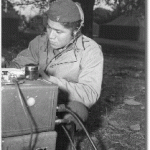 In a war, secrecy is vital. The different sides must take whatever steps necessary to inform their troops and allies of their next step, without revealing the plan to the enemy. In World War II, America and her allies were having trouble with the level of secrecy they were able to achieve. It seemed that no matter what code they used, it was broken almost immediately. It did not help matters that many of the Japanese cryptographers had been educated in the United States. They spoke very good English, and they were very amazingly adept at breaking top secret military codes. For America and her allies, coming up with newer and more complicated codes was becoming more and more difficult, and the Japanese cryptographers seemed to break the new codes almost as quickly as they were developed. They were in real trouble. Then someone remembered a type of code that had been used in World War I, and things began to look up a little for America and the allies. The code was the use of Code Talkers from the Choctaw tribe.
In a war, secrecy is vital. The different sides must take whatever steps necessary to inform their troops and allies of their next step, without revealing the plan to the enemy. In World War II, America and her allies were having trouble with the level of secrecy they were able to achieve. It seemed that no matter what code they used, it was broken almost immediately. It did not help matters that many of the Japanese cryptographers had been educated in the United States. They spoke very good English, and they were very amazingly adept at breaking top secret military codes. For America and her allies, coming up with newer and more complicated codes was becoming more and more difficult, and the Japanese cryptographers seemed to break the new codes almost as quickly as they were developed. They were in real trouble. Then someone remembered a type of code that had been used in World War I, and things began to look up a little for America and the allies. The code was the use of Code Talkers from the Choctaw tribe.
That someone was war analyst Philip Johnston. Phillip, an American who fought in World War I, stationed in France, was too old to fight in World War II, but he wanted to aid in the effort anyway. As a boy, he spent time 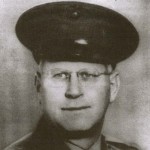 on the Navajo Indian Reservation, where his parents were Protestant missionaries. He learned to speak the Navajo language with his playmates. Suddenly, the idea of a secret military code based on the Navajo language made perfect sense to him.
on the Navajo Indian Reservation, where his parents were Protestant missionaries. He learned to speak the Navajo language with his playmates. Suddenly, the idea of a secret military code based on the Navajo language made perfect sense to him.
In mid-April of 1942, Marine recruiting personnel went to the Navajo Reservation, and presented their plan. They enlisted thirty volunteers from the agency schools at Fort Wingate and Shiprock, New Mexico and Fort Defiance, Arizona. It would be a tall order for these volunteers. Each one had to be fluent in Navajo and English, but they also had to be physically fit, because they would be messengers in a combat zone. They were told that they would be specialists in the United States as well as over seas. Some of them were underage, but birth records on the Reservation were not well kept, so it was easy for volunteers to lie about or just not know their true age, and so they could participate. Carl Gorman, a 36-year-old Navajo from Fort Defiance, was too old to be considered by the Marines, so he lied about his age in order to be accepted.
Because the Navajo language was complicated, and due to the many different dialects, the Japanese could 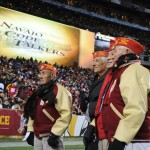 never crack the code. They even captured a Navajo soldier and made him listen to the talk for hours, but because he had not been trained, he was still unable to crack the code. By 1945, there were about 540 Navajos who served in the Marines, and of those 375 to 420 were trained as code talkers. The rest served in other capacities. The code talkers payed an instrumental part in the success of the war effort. On June 4, 2014, Chester Nez, the last living original code talker, passed away. Once, in an interview he said, “My first transmission—one that did not involve coordinates—was one I will always remember: Beh-na-ali-tsosie a-knah-as-donih ah-toh nish-na-jih-goh dah-di-kad ah-deel-tahi, which translates to: Enemy machine gun nest on your right flank. Destroy.” These were great men, and our nation owes them a debt it can never repay.
never crack the code. They even captured a Navajo soldier and made him listen to the talk for hours, but because he had not been trained, he was still unable to crack the code. By 1945, there were about 540 Navajos who served in the Marines, and of those 375 to 420 were trained as code talkers. The rest served in other capacities. The code talkers payed an instrumental part in the success of the war effort. On June 4, 2014, Chester Nez, the last living original code talker, passed away. Once, in an interview he said, “My first transmission—one that did not involve coordinates—was one I will always remember: Beh-na-ali-tsosie a-knah-as-donih ah-toh nish-na-jih-goh dah-di-kad ah-deel-tahi, which translates to: Enemy machine gun nest on your right flank. Destroy.” These were great men, and our nation owes them a debt it can never repay.

 When my grandmother, Hattie Byer passed away, her girls ended up with a lot of jewelry. Grandma loved her jewelry, and always looked so pretty in it. Of course, at the time my sisters and I saw the pieces my mother, Collene Spencer received, we thought many of them were pretty old fashioned…although there were some timeless pieces, because not all jewelry goes out of style. Still, Mom kept and cherished her mother’s jewelry, mostly I’m sure, because it was her mother’s. Now that Mom has gone to Heaven too, my sisters and I have been going through her things, and we have come upon her jewelry, as well as her mother’s jewelry. If Mom could have gotten her hands on all the jewelry we have come across, she would have been simply floating on air. We have found pieces that would have gone with so many of her outfits, and yet she always wore something else with them, because it was difficult to get to the stored jewelry.
When my grandmother, Hattie Byer passed away, her girls ended up with a lot of jewelry. Grandma loved her jewelry, and always looked so pretty in it. Of course, at the time my sisters and I saw the pieces my mother, Collene Spencer received, we thought many of them were pretty old fashioned…although there were some timeless pieces, because not all jewelry goes out of style. Still, Mom kept and cherished her mother’s jewelry, mostly I’m sure, because it was her mother’s. Now that Mom has gone to Heaven too, my sisters and I have been going through her things, and we have come upon her jewelry, as well as her mother’s jewelry. If Mom could have gotten her hands on all the jewelry we have come across, she would have been simply floating on air. We have found pieces that would have gone with so many of her outfits, and yet she always wore something else with them, because it was difficult to get to the stored jewelry.
Now, don’t get me wrong, there has been some stuff that we have looked at and wondered what the person who bought that piece was thinking! When you buy a necklace made of little plastic pineapple beads…dozens of them…well, let’s just say that since they were plastic anyway…they will be part of the little girls’ dress up jewelry. There were also pieces that, while one of us would never wear them, one of the others would. We all have slightly different tastes when it comes to jewelry, so very little of it has been left there with the thought of figuring something out. There were also pieces that, while most likely none of us will ever wear, we can vividly see our mother wearing. Those pieces when drawn for fall into the category of never to be worn, but it’s a Mom Necklace, so it will be kept. There were also pieces that, while probably not valuable, were obviously quite old. Those will be kept and treasured for the treasure they are, and probably only worn on special occasions.
The thing that amazed us the most, was the sheer volume of jewelry Mom had. Every time we come across another jewelry box, shoe box, or drawer with jewelry in it, we have thought, “Wow!! How much jewelry did she have, anyway?” We have even ventured to say that she simply had too much jewelry! Then I got to  thinking…can a girl ever really have too much jewelry. I love jewelry, and I have a lot of it too. Like my mother and grandmother, mine is mostly costume jewelry with no real value to anyone but me, but it’s all jewelry I like…and wear. Now I find myself with a lot more jewelry than I had before, and I find that I am going to need to go through what I had before, decide what to keep and what to give away, and figure out where I am going to store it all. The good news for me is that I wear jewelry every day, so it will get used. Besides, I don’t know what outfits I’ll have in the future and what colors I’ll need. I suppose that some day, my own girls will say that I have too much jewelry, but seriously…can any girl ever have too much jewelry? I don’t think so.
thinking…can a girl ever really have too much jewelry. I love jewelry, and I have a lot of it too. Like my mother and grandmother, mine is mostly costume jewelry with no real value to anyone but me, but it’s all jewelry I like…and wear. Now I find myself with a lot more jewelry than I had before, and I find that I am going to need to go through what I had before, decide what to keep and what to give away, and figure out where I am going to store it all. The good news for me is that I wear jewelry every day, so it will get used. Besides, I don’t know what outfits I’ll have in the future and what colors I’ll need. I suppose that some day, my own girls will say that I have too much jewelry, but seriously…can any girl ever have too much jewelry? I don’t think so.

